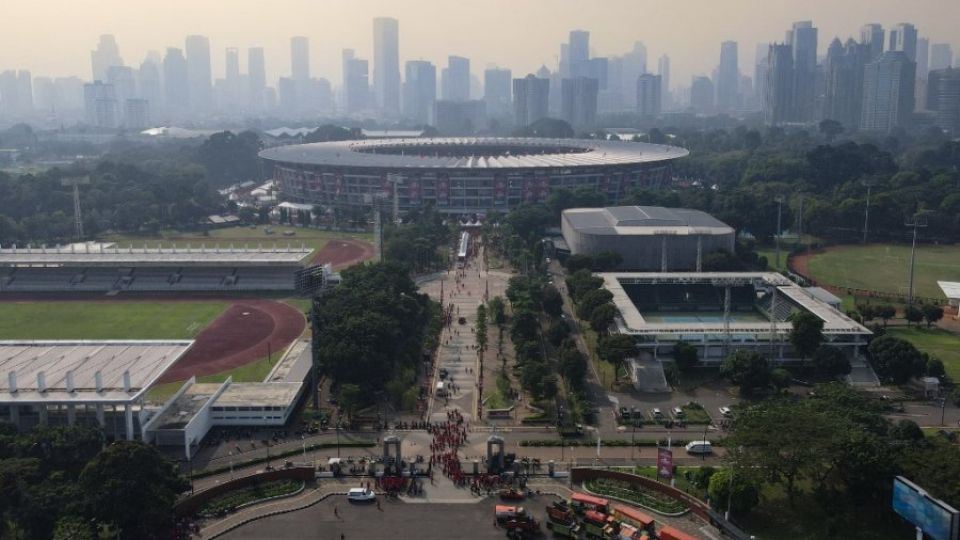December 8, 2023
JAKARTA – A bill under discussion in the House of Representatives that seeks to provide a legal framework for Jakarta’s position when it loses its capital status next year has sparked concerns over a provision that could strip the city’s 10 million residents of their right to elect a governor.
With August of next year as the government’s deadline for moving the national capital to Nusantara in East Kalimantan, the House is working on the Jakarta special designation bill to replace the 2007 Jakarta Capital Law while maintaining the 500-year-old city as the country’s economic center by upholding its designation as an autonomous province.
During a House plenary session on Tuesday, eight of the nine political parties represented in the legislature agreed to endorse the bill as a House initiative, with only the Prosperous Justice Party (PKS) in opposition.
The next step would be for lawmakers and the government to discuss the legislation before a House vote on its passage into law.
But some lawmakers and observers have taken issue with a provision in the bill that gives, according to a copy obtained by The Jakarta Post, the president the sole authority to appoint and dismiss Jakarta governors and deputy governors, after considering input from the Jakarta Regional Legislative Council (DPRD).
According to the bill, the appointed governor would serve for five years and would be eligible for a second term of the same length. The regional leader would also, as in the city’s current arrangement, be responsible for appointing the mayors and regent of Jakarta’s constituent municipalities and regency.
The provisions were among the reasons that the PKS opposed the bill, said party lawmaker Hermanto, adding that deliberations on the bill had been “rushed” and lacked meaningful public participation.
“[Regional elections] need to be maintained in order to create a more consistent [democracy across the board],” he said during the Tuesday plenary session.
Other lawmakers, including from parties that backed the bill on Tuesday, have slammed the contentious provisions for stripping Jakartans of their right to elect regional leaders.
Indonesian Democratic Party of Struggle (PDI-P) politician Gilbert Simanjuntak said granting the president the sole authority to appoint Jakarta’s governor would mirror the central government’s hold over regions under Soeharto’s New Order.
“The spirit of the Reform era and constitutional amendments is to strengthen regional autonomy,” he said in a statement on Wednesday. “This new bill doesn’t fit [that spirit] since it would give even more power to the president.”
City stifled
Herman Suparman of the Jakarta-based Regional Autonomy Watch (KPPOD) argued that having an appointed governor would undermine the legitimacy of the regional government and cause Jakartans to lose much of their voice in government, which could stop policies in the regional public’s interest from being enacted.
He said interim Jakarta governor Heru Budi Hartono, who was appointed by President Joko “Jokowi” Widodo in October 2022, served as an example of such issues.
Heru, who is temporarily occupying the position before legislative elections are held next year, had his term extended for another year in October.
But prior to this tenure extension, the interim governor was grilled by the Jakarta council on several issues, including worsening pollution, poverty and inflation.
“A lot of programs now run by [the acting governor] have not been received well by [Jakarta’s residents],” Herman said. “If this pattern continues, it’ll adversely affect Jakarta’s stability and governance.”
Achmad Baidowi, who leads the House working committee on the Jakarta special designation bill, claimed the bill’s requirement for the president to hear from the DPRD before appointing or dismissing Jakarta’s governor was “a good compromise”.
He claimed this would allow Jakartans’ interests to be accommodated while saving on the cost of holding a regional election.
“The DPRD will meet and [decide] on which names to be proposed [to the president]. That’s the democratic process,” Achmad said on Tuesday, as quoted by kompas.id. “So the democratic process isn’t completely lost because democracy doesn’t necessarily have to mean a direct election.”
The version of the bill obtained by the Post makes no mention of any compulsion for the president to select from any set of names proposed by the DPRD. It says the president is to “take into account the suggestions and opinions of the DPRD”.
Presidential expert staff coordinator Ari Dwipayana dismissed speculation that President Jokowi had sought to influence the bill’s deliberation, asserting that it was a House initiative.
“The next step for the President is to appoint several ministers to represent the government in the deliberation,” he said on Wednesday, as quoted by kompas.com.


